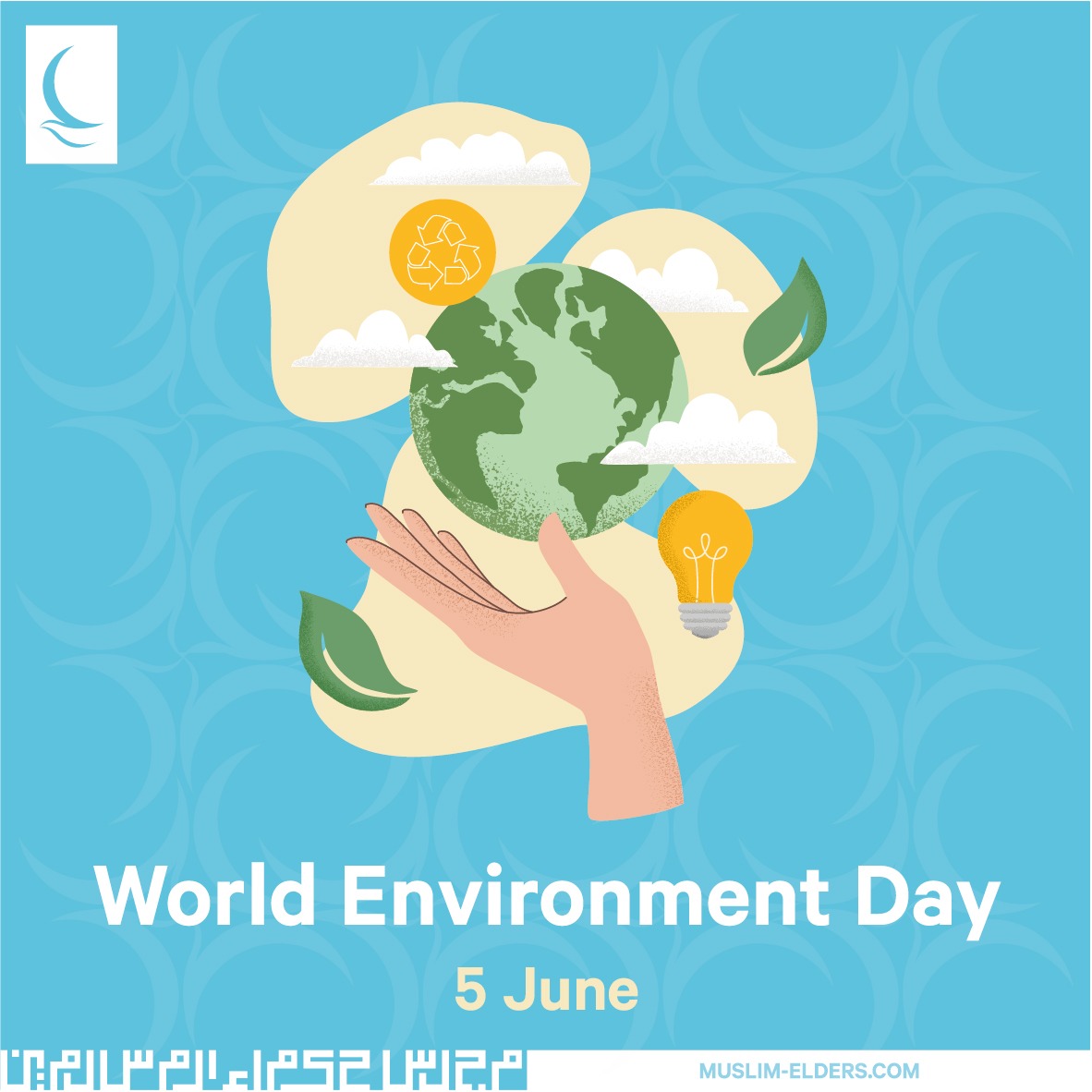and sustaining its resources is a religious and ethical duty in order to promote peace, development, and global stability
As part of universal efforts towards protecting the environment and preserving the world’s natural resources, the Muslim Council of Elders affirms that environmental conservation and the sustainability of its resources are religious and ethical duties that contribute to advancing global peace, development, and stability.
On World Environment Day, which is celebrated by the United Nations on June 5th of each year, the Muslim Council of Elders calls for the unification of efforts aimed at preserving the environment by promoting sustainability and raising awareness about environmental risks that threaten life on this planet. It also emphasizes the significant role that individuals and institutions can play in protecting and preserving the environment and mitigating the negative impacts of climate change, which is one of the main challenges endangering life on this planet.
The Muslim Council of Elders has undertaken various efforts to raise awareness about environmental issues and climate change. The Document on Human Fraternity, co-signed by His Eminence Dr. Ahmed Al-Tayeb, the Grand Imam of Al-Azhar and Chairman of the Muslim Council of Elders alongside His Holiness Pope Francis, Pontiff of the Catholic Church, in Abu Dhabi in 2019, emphasizes the necessity of addressing climate change. Additionally, the exceptional meeting of the Muslim Council of Elders and senior representatives of the Catholic Church which took place during the Bahrain Dialogue Forum, further discussed the role of religious leaders in facing current global challenges, particularly climate change.
In late May, His Holiness Pope Francis, Pontiff of the Catholic Church, alongside Judge Mohamed Abdelsalam, the Secretary-General of the Muslim Council of Elders, and His Excellency Majid Al Suwaidi, Director-General and Special Representative for the Presidency of the United Arab Emirates for the COP28 conference, discussed the possibility of launching a joint initiative to invite all religious institutions, religious leaders, and civil society organizations worldwide to unite their efforts in achieving the shared goal of protecting the Earth. The meeting also explored the potential establishment of an interfaith and intercultural dialogue pavilion at the COP28 conference, which would serve as a dedicated platform for enriching enlightened religious dialogue, knowledge and experience exchange, and highlighting the crucial role of leveraging religious insights and values in addressing the current climate crisis.
The United Arab Emirates will host the 28th Conference of the Parties to the UN Framework Convention on Climate Change (COP28) from November 30th to December 12th, 2023. The aim of the conference is to seek effective solutions to confront the negative impacts of climate change, as one of the main global challenges threatening life on this planet.
